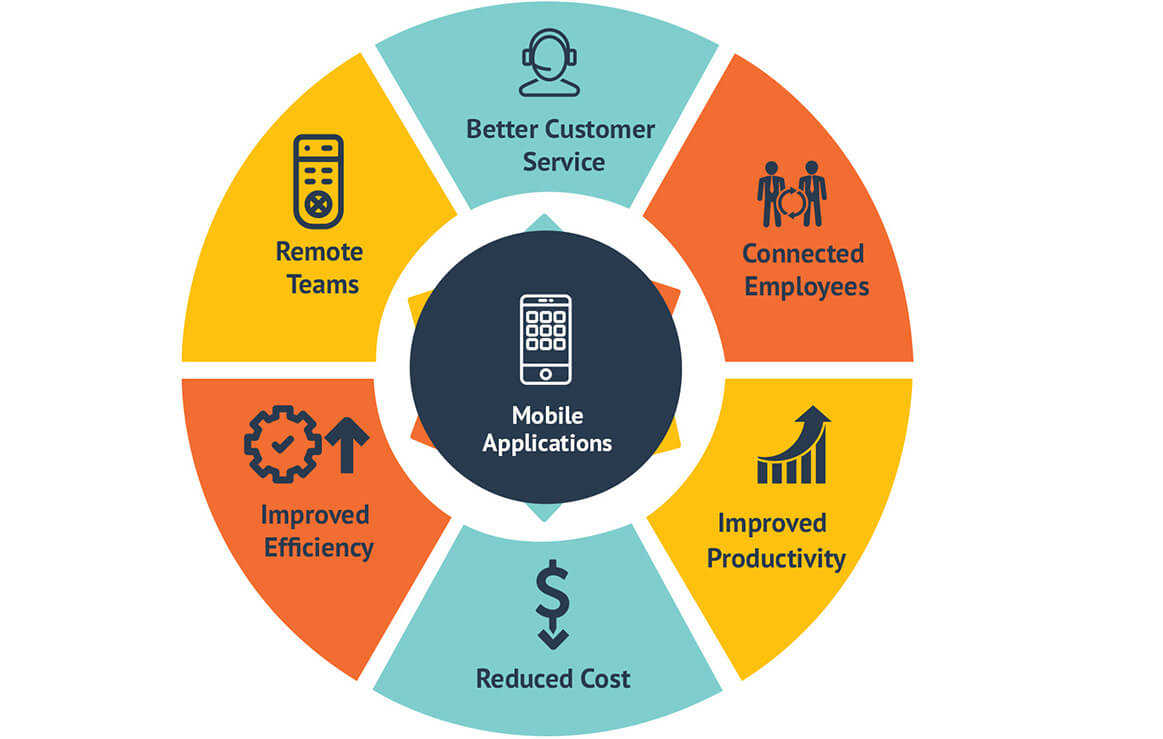Designing apps for mobile devices can be more challenging than those run on laptop or desktop computers or full web browsers. It’s a good idea to ensure you’re working with a software development company that’s experienced with developing similar applications for other businesses.
Extending business applications to mobile devices is becoming a priority for companies around the world. But to achieve a scalable, responsive solution that will work across a variety of devices, many components need to work seamlessly together.
The 2015 VMware Survey included 1,183 IT leaders, business decision makers and CIOs, and found that 20% of companies had already taken a step towards business mobility, shifting a core business process such as insurance claims processing, mobile patient care, or inventory management to a mobile model.
The survey also found that the customers executing business mobility plans had an average ROI of 150%, which is at least double that of the companies without a mobility plan. Some notable gains included reductions in total management costs and IT operational staff, along with the ability to more quickly bring new revenue streams online.
Some of the other benefits of integrating mobile devices within your business include:

Better customer service
Mobile apps have revolutionised the way that customers are connecting with companies, allowing better customer service. They also reduce overheads by making communication channels simpler, increasing customer lifetime value and sales and brand advocacy.
Greater connection with employees
These days, many employees are choosing to work remotely from home instead of going into the office regularly, and need to stay connected with work. For these employees, it’s crucial that they have access to tech solutions that allow them to access data remotely, share information, and collaborate with coworkers.
These apps allow employees to use their mobile devices to collaborate while on the go. A manager could be replying to emails while in transit on the way to a conference, and an IT worker completing an audit could take note of the issue in real time and record it straight to the system instead of needing to add it later via a desktop.
Improved productivity and reduced costs
One of the best ways to encourage staff to get to know the new app is by using a BYOD (Bring Your Own Device) program, which allows employees to select their own tablet or smartphone to use at work.
When employees are using their own smartphones or tablets, they’re working effectively as soon as the app is installed, since they won’t need to be trained in using the device. Most staff are relatively familiar with the general functionality and layout of a smartphone, so can quickly understand the way the app works.
Compare this to new software, which often has a steep learning curve involved when implemented.
How do you successfully extend your business applications to mobile devices?
Consider mobile applications to be an extension of your current software and not a separate app. If you could extend key aspects of your existing software to mobile devices, which ones would you choose, and how would this help your business?
Ideally, your first app will be a business requirement that allows you to gather information and improve your business processes. It shouldn’t be mission-critical, but the aim should be to produce a realistic development experience and useful business outcome.
To be effective, the app should have a well-designed user experience, taking user behaviours and attitudes into account. The app should also offer either greater efficiency or unique capabilities that are currently not associated with the business application, so that user expectations are met and the ROI makes the development of the mobile app worth the costs.
One of the biggest points to consider is that the mobile app should be making work faster and easier for employees, and less expensive for your company. While the aim is to extend existing business applications, you should also be aiming to make them better and more accessible with the mobile version.
Interested in learning more about how you can extend your business applications to mobile devices in 2017? Get in touch today and we’ll let you know how we can help.



